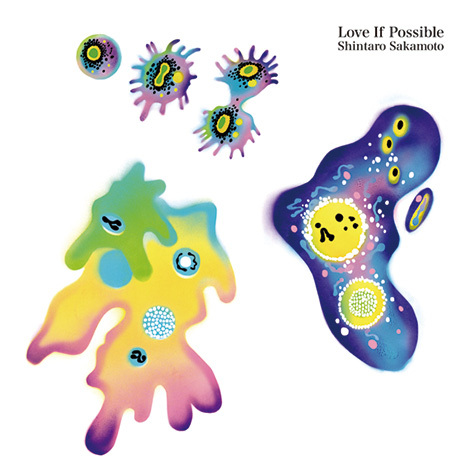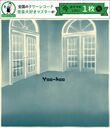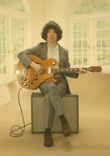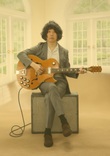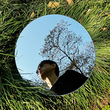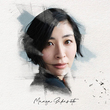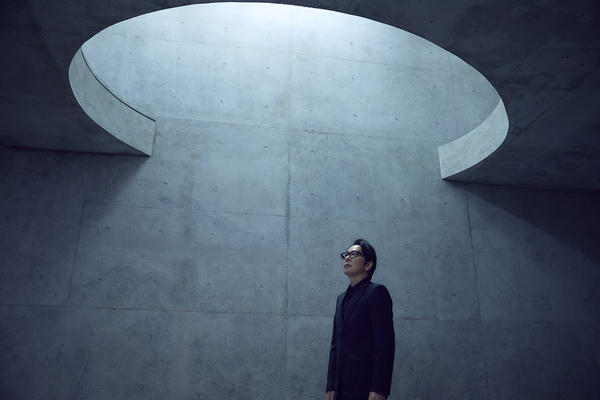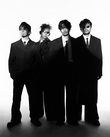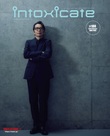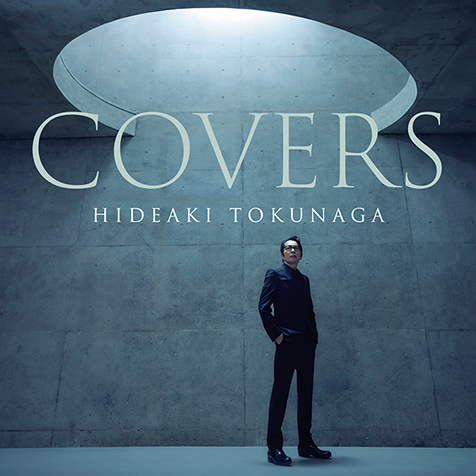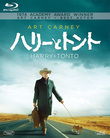ソロ3作目のテーマは〈顕微鏡でのぞいたLOVE〉ということで、現実のさまざまな場面でのコミュニケーションで起こる共感や違和感、希求や諦めなんかを、醒めた視点から可笑しみのあるストレートな言葉でマイルドにスケッチした短編集といった印象。サウンド面はリズム隊によるシンプルかつタイトで軽快なアンサンブルを中心に、リヴァーブのかかった乾いたギターのリフ&カッティングとスライド・ギターに加え、女性コーラスやオルガン、マリンバ、フルート、ピッチを変えたチビ声などが効果的に鳴らされていて、これまで以上にヴァラエティー豊かな曲が並ぶ。ソウルやボサノヴァ、ジャズ、フォークなどヴィンテージな音楽の影響を受けつつもサラッとしたポップ・サウンドという路線は踏襲。全体的に何か薄い靄が常にかかっているような、現実味が失われていくシュールな感覚と白々しさに覆われたムードがチャーミングながらも不気味で、聴後は虚空に取り残されたような気分になるストレンジな作品だ。
[English Translation]
Shintaro Sakamoto’s Dekireba Ai Wo (meaning Love If Possible)
Under the concept of “Love under the microscope”, former frontman of Yura Yura Teikoku, Shintaro Sakamoto’s 3rd solo album is like a collection of short stories which sketches a certain empathy, sense of discomfort, strong desire or resignation arising from communication in real-life situations with humorous, straightforward lyrics from a cool-headed point of view. Based on a simple, tight and light ensemble by the rhythm section, it contains a wider range of tunes than ever before, with female choruses, organ, marimba, flute and pitch-shifted childlike voices sounding effectively along with dry riff & cutting and slide guitar with reverb. While being influenced by vintage music such as soul, bossa nova, jazz or folk, he follows the line of smooth and light pop music. Like a thin haze blanketing the whole of the album at all times, this strange album has a charming yet creepy mood covered with lameness as well as a surrealistic feeling of losing reality, making you feel like being left in empty space after listening to it.
ラテン・ムード・サウンドに、ディストピアのおとぎ話を融合した前作から2年。現代における不穏や不安を飄々と炙り出す吟遊詩人の最新作〈顕微鏡でのぞいたLOVE〉がテーマ。神や独裁者、世界の終わりというショッキングな言葉が並ぶ前作と比べ、作品内のモチーフは曖昧で、現実や生活に即したシュールな言葉が並ぶ。ラテン/トロピカルからミニマル/クラウトロックへとサウンドの意匠はドライに変化しながらも、坂本の中に眠る音楽へのシンパシーを慎まやかに開放する終盤はロマンチック。“次の夜へ”、“東京寒い”といった過去の名歌詞の延長線で位置づけられる“ディスコって”は必聴だ。
